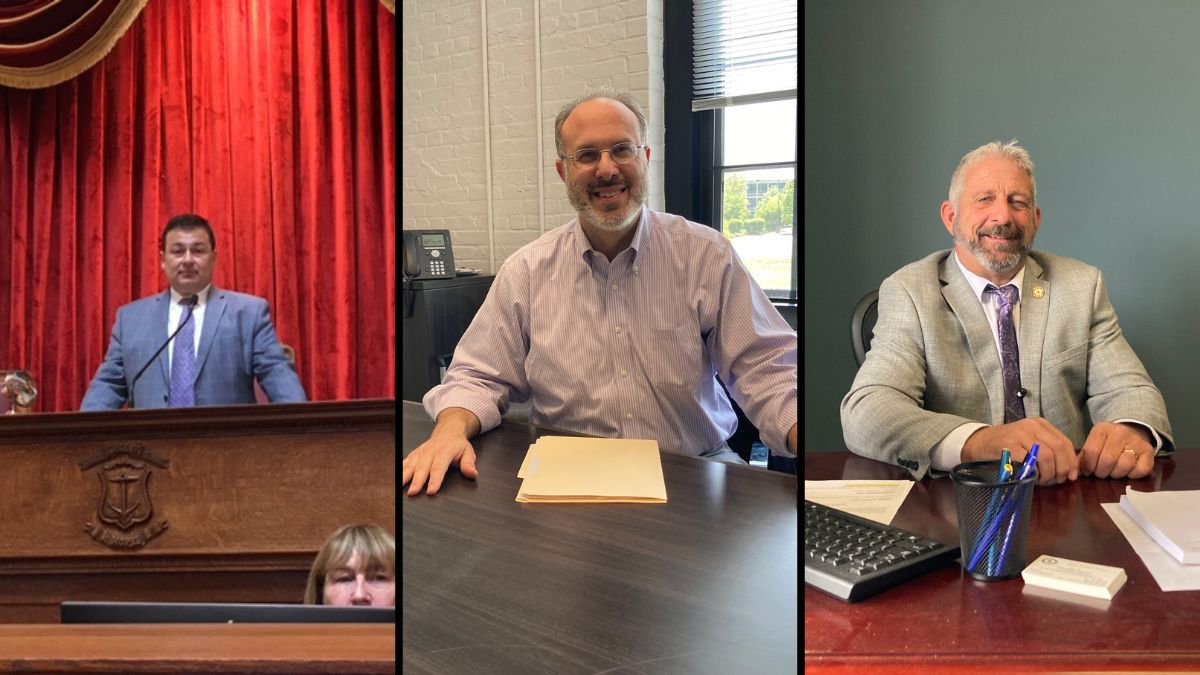
House Speaker Joe Shekarchi, left, is among those raising the focus on housing.
RI Housing Secretary Stefan Pryor, center, says the housing crisis hurts the state’s economy.
State Sen. Gordon Rogers (R-Foster), right, has spoken out for the concerns of rural communities.
IAN DONNIS / THE PUBLIC’S RADIO
By Ian Donnis
The Public’s Radio
Rhode Island’s housing crisis has climbed to the top of the state’s political agenda. But making progress remains difficult due to a number of factors. In the first in a series of periodic stories from our newsroom on the housing crisis in our region, we look at what happens when the rubber meets the road.
On a recent Thursday, the heads of four nonprofit agencies gathered outside a blighted former nursing home on Taunton Avenue in East Providence. They came together to make the case for building a 160-unit apartment complex on a three-acre site that includes two vacant lots. The housing would serve a mix of different needs — the formerly unhoused, young people aging out of foster care, and low-to-moderate income individuals squeezed by the high cost of housing.
Supporters call this proposal — known as the Taunton Avenue Collaborative — an innovative way to chip away at the housing crisis. And, they say, it makes good financial sense since permanent housing is less costly in the long run than emergency housing.
“The fact that we’re taking a blighted abandoned property and turning it into desperately needed housing in this collaborative effort with four organizations that voluntarily came together in a sector that doesn’t get credit for doing that is, I think, unprecedented ” said Karen Santilli, CEO of Crossroads Rhode Island. “This could be a model for the state and the country.”
But there’s a catch. To complete the project in roughly two years, the Taunton Avenue Collaborative is seeking a $28 million state appropriation.
Without that, it will take years longer and cost a lot more in borrowing to finish the development. Money is often at the heart of the state’s housing shortage. The proposal appears likely to get some state dollars, but not nearly the $28 million needed to expedite completion — a funding gap that reflects how Rhode Island is just beginning to confront its housing crisis.
As House Speaker Joe Shekarchi put it, “I recognized from the very beginning it would be a multi-year effort.”
Shekarchi has raised the focus on housing, in part by supporting a package of 14 bills making their way through the General Assembly. The legislation is meant to streamline permitting, encourage the adaptive reuse of commercial buildings, and expand the housing supply, in part by allowing more accessory dwelling units, also known as granny flats. Shekarchi said filling Rhode Island’s need for 24,000 additional housing units will require a different mindset, a sustained effort, and new housing at a variety of income levels.


